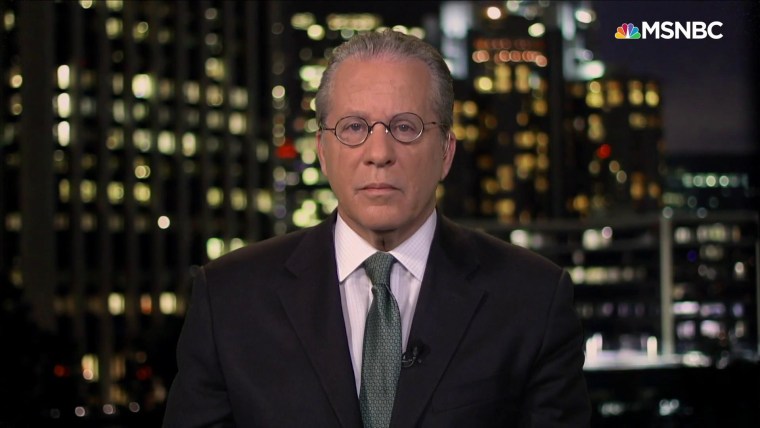WASHINGTON — The Trump administration and lawmakers on Capitol Hill are turning their attention to the latest emergency spending bill as the economic impact of the coronavirus intensifies, racing to reach a deal on what could be the largest stimulus package in American history.
Senate Majority Leader Mitch McConnell, R-Ky., said Thursday that Republicans were finalizing their stimulus proposal that would include a number of economic relief measures for small businesses, industries and Americans, and said that Sen. Chuck Grassley, R-Iowa, was working to finalize how President Donald Trump’s request for $500 billion in direct payouts to Americans would be structured.
“These are not ordinary policies, this is no ordinary time,” McConnell said.
But much about the bill is still unknown. It is unclear who would qualify for the money, if there will be an income cap, how they would get the money, and how much money would be sent, among other questions.
Treasury Secretary Steve Mnuchin said Thursday that the White House wanted to send $1,000 to adults and $500 per child, but did not elaborate on any potential restrictions, such as income caps. Mnuchin told Fox Business he hoped a first round of payments would go out within the next three weeks if Congress approves a plan quickly, with the possibility of a second round of payments if the crisis is still ongoing in six weeks.
Senate Minority Leader Chuck Schumer, D-N.Y., said that Democratic support would be contingent on greater levels of aid than the White House had already suggested, paired with other economic relief efforts for workers.
“That [amount suggested by the White House] might help families cover rent, groceries for a month, but then what?” Schumer said Thursday. “If we are going to do it, it’s got to be bigger, more generous and more frequent than what I’ve heard.”
McConnell said he wanted to reach a consensus on the bill among his Republican colleagues before opening up negotiations with Democrats.
Some Republicans, such as Sen. Lindsey Graham of South Carolina, have expressed skepticism over direct cash payments and suggested that more resources ought to be directed at helping small businesses meet payroll.
Let our news meet your inbox. The news and stories that matters, delivered weekday mornings.
Other Senate Republicans, including Josh Hawley of Missouri and Rick Scott of Florida, have taken issue with the White House’s proposal to include industry bailouts for airlines and other stressed sectors.
“If you’re coming to me and asking for just a bunch of taxpayer money, just give it to us, I’m not going to be for that,” Hawley said Wednesday.
Some lawmakers have floated their own proposals, jockeying to have their priorities reflected in the final plan.
Republican Sens. Susan Collins of Maine and Marco Rubio of Florida announced Wednesday they were working on a proposal to give more aid to small businesses.
Rep. Maxine Waters, D-Calif., has proposed giving $2,000 to every adult and $1,000 per child until the coronavirus crisis ends.
McConnell’s decision to keep Democrats out of the initial round of discussions frustrated some lawmakers, who pointed out that previous coronavirus spending bills had included direct negotiations between House Speaker Nancy Pelosi, D-Calif., and Mnuchin.
Still, it hasn’t kept Democrats from opening up their own dialogue with the White House. Both Pelosi and Schumer have spoken with Mnuchin multiple times in the past few days about the third coronavirus bill.
“We are ready and eager to look at what Republicans have put together, and work with them. But we believe whatever proposal emerges — and it will be bipartisan — it must be a ‘workers first’ proposal,” Schumer said Thursday.
McConnell expressed optimism Wednesday that his party could reach a consensus quickly. “Republicans hope, shortly, to have a consolidated position along with the administration and we intend to sit down with our Democratic colleagues, see what we can agree to,” he said.
The majority leader, who has stressed the need to act quickly, could unveil his starting-point proposal as early as Thursday. But even then, Democrats would need to come to an agreement and the bill would need to be put into legislative language.
Senators said they expected to work through the weekend and hoped to hold a vote the following week.
On Wednesday, McConnell advised members to stay close.
“Just how long it will take to get through these steps is unclear, but as everyone knows we are moving rapidly because the situation demands it,” he said on the Senate floor Wednesday after the chamber passed the second coronavirus spending bill.
Hanging over Congress’ head is the revelation that two members had been infected with the coronavirus, adding to the need to act quickly as more and more lawmakers could be forced to stay home.
Reps. Mario Diaz-Balart, R-Fla., and Ben McAdams, D-Utah, announced Wednesday they had tested positive, forcing some lawmakers who had been in close contact with them to self-quarantine.
House Majority Leader Steny Hoyer, D-Md., announced Thursday morning that the House would not return to session until they are ready to vote on the emergency bill.












